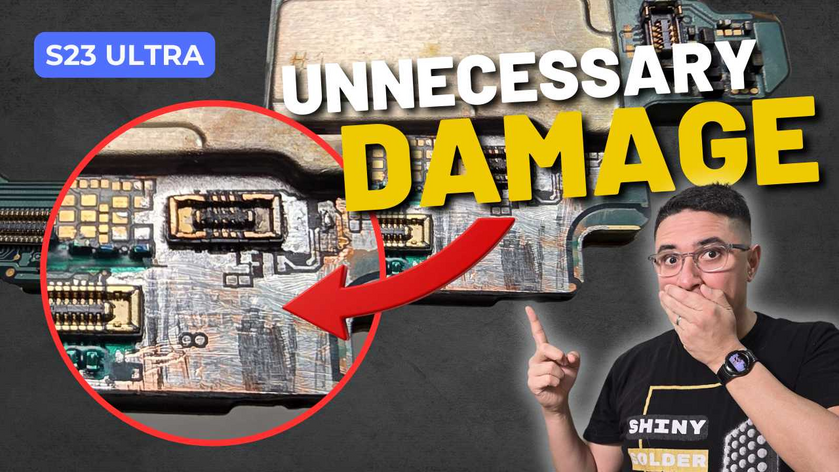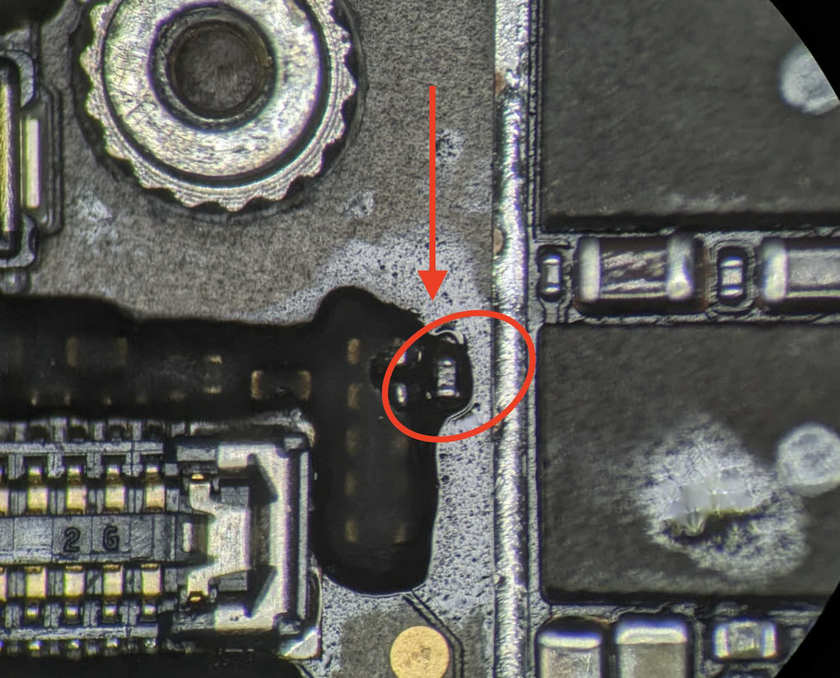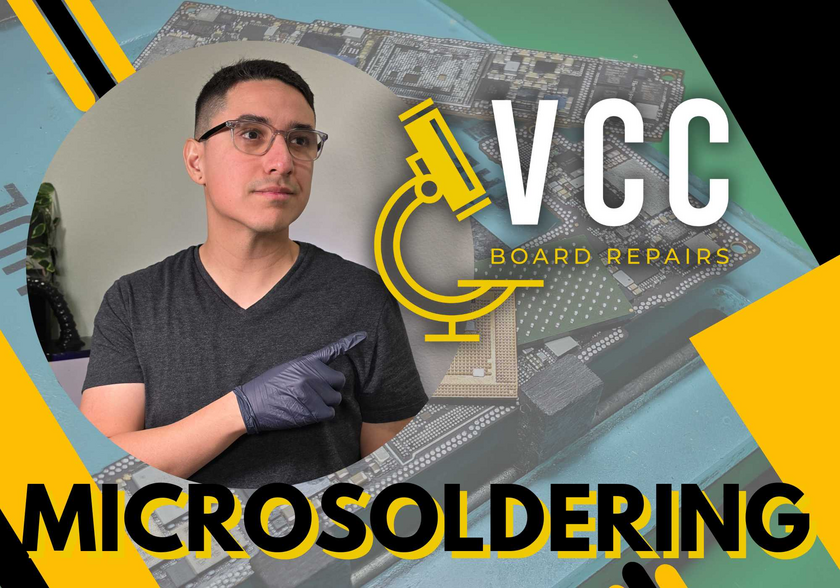
During my recent iPhone 12 CPU Swap Video (linked in the comments), I ended with the phone fully booting, but restarting every 3 minutes.
Since I didn't swap the NFC chips, I have to go through the "Swipe to Recover" screen, where it shows a white screen that says "Attempting Data Recovery".
I like to this of this process as it's "reprogramming the new NFC chips" so it can allow the phone to boot & unlock.
This process can take anywhere from 10-45 minutes, depending on how much data is on the phone.
In the video, when we started the "Swipe to Recover" process, I noticed that within 3 min or so, the phone would auto restart. So without the Swipe to Recover process completing, I am unable to access the data.
Due to how long the video was, I decided to end it there & post the fix here.
First thing I tried was a new charging port flex, as that's the most common fault of 3 min restart for iPhone 12, but no change.
I then decided to diode mode the charging port FPC connector, as that's where the sensor from the charing port flex (pressure sensor aka Prs0) would connect to, to reach the next part of the circuit.
And sure enough, I found a line that was OL, when it should have had a reading.
The line was labeled as "Eiger" (PPVAR_EIGER_S2_CONN) and I know I've seen a panic log that mentions Eiger, as being part of the charging port flex.
ZXW showed that there's a filter near the PMIC shield on that line.
Sure enough, the filter was missing. Most likely caused by my iron, when I was applying the low melt solder to the shield, as a way to make the shield removal easier.
I replaced the filter from the original customer's board & boom! The phone stopped rebooting & the data was saved!
It wasn't obvious that the filter was missing, as it was mostly covered in underfill too! So without measuring with my multimeter, I would have never found it.
Also, it's important to diagnose thing systematically. If you think through "what's the most likely cause of this?"
Then drill into that issue & confirm it's not it, then you move onto the next most likely, and so on.
This type of diagnosing, troubleshooting & fault finding skill comes from years of non stop working through these types of cases. We see so many different types of scenarios, that we can easily anticipate what could be happening, as we've probably seen something similar before.
I hope this post helps you see my thought process of how I help solve this case & successfully recover the customer's data.
If you have a Seek Thermal Cam, you're missing out if you don't have a VCC Seek Stand: https://www.vccboardrepairs.com/buy-seek-stand
Injured Gadgets just got these back in stock, so get them while you can!
It can take us a while to build these out sometimes, so they're sometimes out of stock for a while, but we're working towards always having inventory ready to build more as they sell out.
This stand makes using a thermal cam so easy. So much better than any other thermal solution on the market.
It allows you to get real close up (using my Macro Lens), and easily find where the short is coming from.
Plus it's hard free, so you can have your hands free to try to boot the device from DCPS, while having an image that is in focus & not moving around.
You can even record a video through the app, while you inject voltage into the short, so you can go back & see exactly which component was it that was heating up.
Save yourself lots of time by getting a Seek Cam, Stand & Macro Lens! ...
Anyone who is doing game console repairs, knows how many screws you need to remove to access the motherboard.
Especially the PS5, with the 5,000 screws or so.
If you don't already have an electric screwdriver, GET ONE ASAP.
🌟 Cordless Screwdriver with T9 Bit: https://amzn.to/3E5duCj
🌟Extended T9 Bit: https://amzn.to/3c4YJac
It's rechargeable through micro USB and allows you to easily swap the tips out. You can also fold it to be straight or L shape.
Let me know below if you are already using an electric screwdriver 👇👇
This iPad Pro 11-inch had already been worked on, but the real problem wasn’t the port.
Using a USB-C PD meter and Mechanic USB-C tester, I was able to confirm abnormal charging behavior and trace the issue deeper into the board. The fault ended up being a failed CD3215C00 charging controller IC and TriStar.
After replacing the ICs, recovering the battery voltage, and verifying proper USB-C PD negotiation, the iPad returned to full 15V fast charging.
This is why proper diagnostics matter. The charging port is only one part of the circuit.
—
Repair techs: how often do you see charging IC failures after port damage?
—
Watch the full repair video here 👀:
Just posted a new iPad charging port repair video for techs dealing with base model iPads and Air/Pro variants with soldered dock flexes.
This iPad 7 was a classic life but no charge case. In the video I walk through:
- Confirming it’s a charging issue and not a no-power board fault
- Using a USB charging meter to verify current draw
- Verifying the port with the Mechanic Lightning tester
- Confirming dock flex failure with the Blue Tristar tester
- The soldering technique I use to remove and replace these dock flexes without ripping pads or damaging surrounding components
This design applies to multiple iPad generations, so the diagnostic and soldering process carries over to a lot of models.
Curious who still struggles with replacing these dock flexes without ripping pads?
🔥Full video breakdown of diagnosing and replacing a soldered iPad charging port:
Device came in water damaged after a previous repair attempt by another technician.
Board had scraped areas near the battery connector, unnecessary UV mask around multiple components, and incomplete inspection (main CPU shield was never removed).
Initial checks:
VPH power and VBAT lines not shorted
1V8 rail was hard shorted
Troubleshooting process:
Removed shields that were never taken off during the previous attempt
Removed charging IC due to questionable solder work
Removed a nearby IC that was still corroded underneath
Used DCPS + thermal camera to inject voltage and attempt to locate the short
Continued inspection and testing until no further progress could be made
At that point, proceeded with a full CPU swap:
CPU, RAM, UFS, and EEPROM transplanted to a known good board
Device booted and data was successfully recovered.
Full breakdown is up on YouTube. Link in the comments below





















